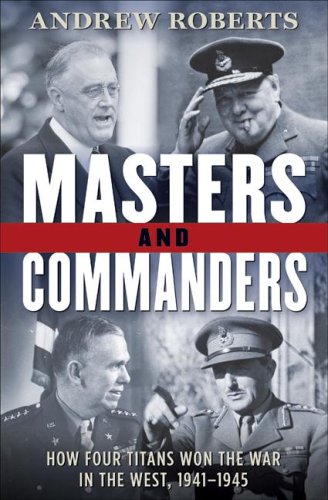“קראתי כבר הרבה ספרים על מלחמת העולם השנייה, ובכל זאת הספר הזה הפתיע אותי. זה אינו ספר על מהלך הקרבות ולא על חוויות הלוחמים - זהו ספר על ארבעה אנשים שניהלו את המלחמה מצד כוחות הברית: הנשיא האמריקני רוזוולט, רוה"מ הבריטי צ'רצ'יל, הרמטכל האמריקני ג'ורג' מרשל והרמטכ"ל הבריטי אלן ברוק. בעבודת נמלים המחבר מתאר את אופן קבלת ההחלטות החשובות, את הנפשות הפועלות, את הוויכוחים בין המשתתפים לגבי ההחלטות הדרושו”







